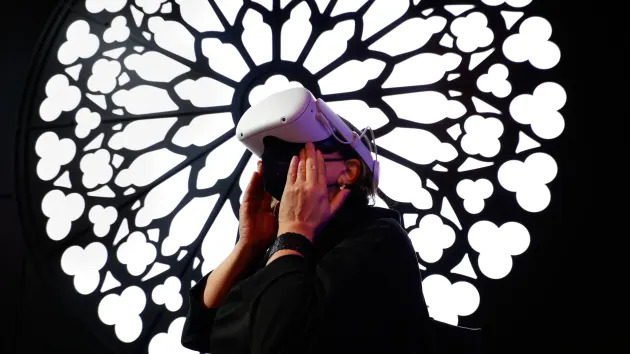The shape that the metaverse will take is still unknown, but South Korea is betting on the fledgling industry as the next big thing.
As part of its Digital New Deal, a program for investing in new technologies in the country’s economy, the Ministry of Science and Information and Communication Technologies plans to kickstart the metaverse industry in South Korea by supporting companies and creating jobs.
Minister of Science and ICT Lim Hyesook called the metaverse “an uncharted digital continent with indefinite potential,” with the government earmarking 223.7 billion won ($177.1 million) for the endeavor, reported by CNBC.
On the city level, Seoul’s metropolitan government is building a 3.9 billion-won metaverse platform to allow citizens to access public services virtually.
The metaverse, which has drawn hype in the last year, refers to technologies like virtual reality and the idea that people may be playing and living in virtual worlds. It has been touted as the next frontier in technology services, especially since Facebook rebranded itself as Meta and committed to developing a metaverse-focused future.
That all fits into the concept of Web3, a broad church encompassing the metaverse, virtual reality, augmented reality and blockchain technology, as well as digital assets like cryptocurrency and non-fungible tokens (NFTs).
South Korea’s investment of around $177.1 million is among the first investments in the nascent industry to be made by a national government and is a cautious first step into the metaverse.
It signals an interest in a technology that could take center stage in the coming years — and it could provide a blueprint for others to follow.
“It’s interesting, it’s predominantly a private sector and Big Tech-driven initiative and trend. Governments have not done much beyond South Korea,” Yugal Joshi, a partner at research firm Everest Group, told CNBC.
Other government bodies in Asia are taking notice, too. Shanghai’s authorities have been encouraging public services to be built with the metaverse in mind, as previously reported by CNBC.
“Some things are happening in bits and pieces but I believe this does tell you that governments are starting to take this more seriously because it’s a platform where people come together. Anything which makes people come together, it makes governments interested.”
Joshi said that in China, tech giants like Tencent and Alibaba have shown a keen eye for developing metaverse products, with the latter recently investing in an AR glasses start-up.
He added that metaverse activity in Asia, much like the rest of the world, is still in its infancy, as companies invest time and money in finding the first major winning application.
Despite the growing interest and South Korea’s plans, no country has emerged with a clear first mover advantage, he said.
“How governments will use it is still undecided because the entire ecosystem is still undecided. It is still being built.”
How metaverse technologies will gel with existing regulations is therefore among many questions that governments and policymakers will have to grapple with in the coming years.
For example, NFTs, a critical component of many metaverse developments, remain in a legal gray area in South Korea and are not subject to the same rules as cryptocurrencies.
A spokesperson for the Ministry of Science and ICT declined to comment beyond its public statements.
But, for now, the adoption of NFTs or crypto in the country hasn’t been curtailed, and big names are getting in on the trend.
BTS, the record-breaking K-pop group, announced an NFT project late last year. Despite some backlash from fans over environmental concerns — NFTs and cryptocurrencies require a lot of computing power — the project is moving ahead.
Meanwhile, LG Electronics, the Korean tech giant, launched a blockchain and cryptocurrency division earlier this year.
Meta envisions a metaverse in which people socialize in digital worlds through avatars. But a novel digital experience brings with it old problems, too. Questions of privacy, security, safety and illegal activity will be challenges for such platforms and the authorities that oversee them.
Those are among the myriad issues that South Korea and other governments will have to address when venturing into the metaverse, whether it’s using the technology to improve citizen engagement, or in deciding the role they will play as regulators of a rapidly expanding technology.
In light of this, South Korea plans to create a body that brings together different ministries to monitor issues like data protection, illegal behavior and intellectual property protection.
But collaboration across different authorities may be necessary if the metaverse becomes as ubiquitous as its proponents hope.
The Institute of Engineering and Technology, a U.K.-based organization, published a report in April which outlined its concerns around abusive or illegal content in the metaverse. Children are at risk, it said, citing a survey that found two-thirds of parents don’t understand how the metaverse works or what content their children are accessing.
“Nobody is thinking about it meaningfully, which is unfortunate because it’s actually very important but that has happened in social media as well,” Joshi said.
He added that there are a lot of companies jumping on the metaverse “bandwagon” without examining these particular risks.
“I haven’t come across many areas where vendors are building these platforms or even enterprises that are really thinking about these things.”





















